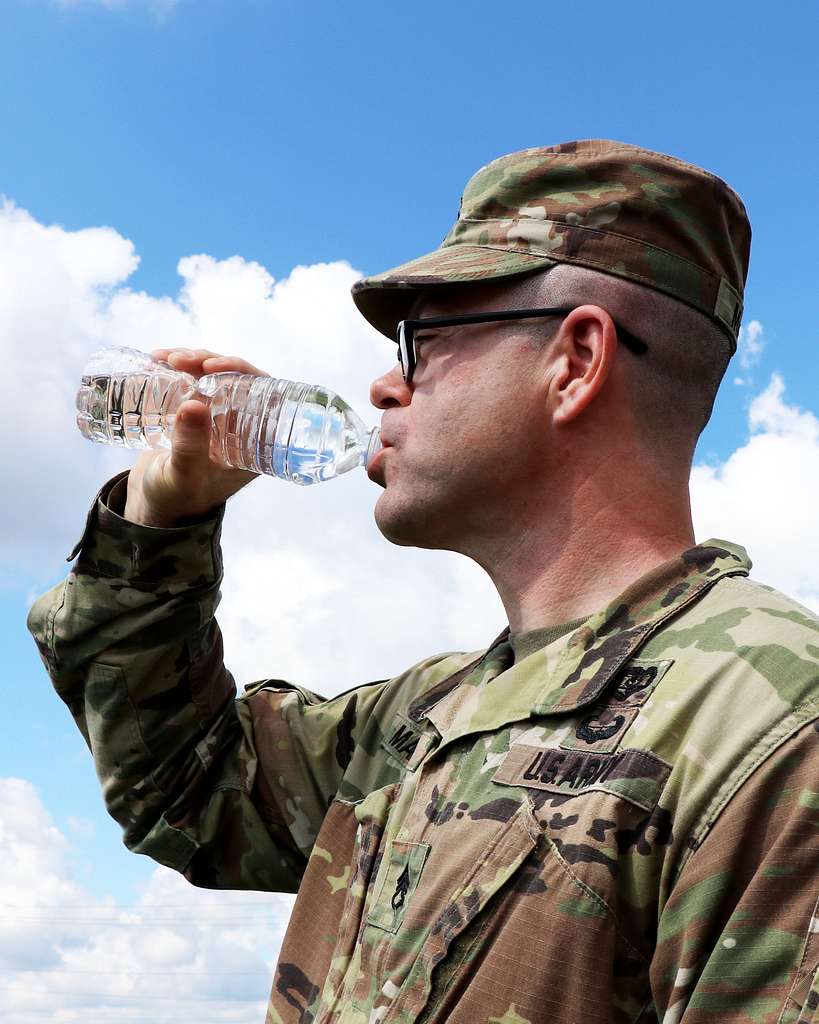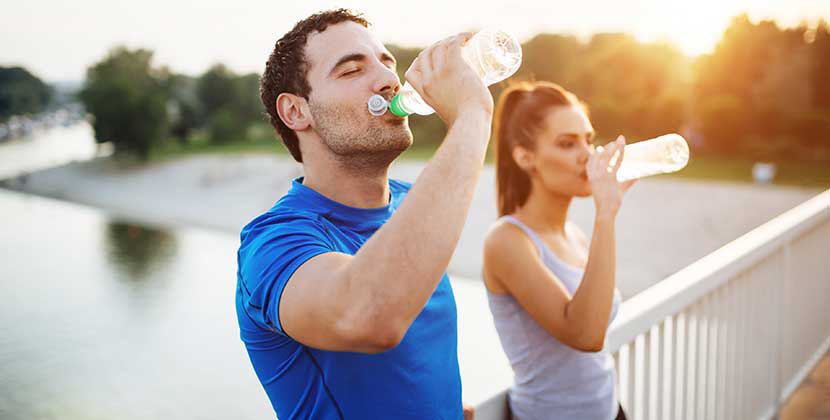When practicing a sport, whatever it is, several factors must be taken into account. Dehydration is one of them. Here we tell you more about the subject.
At any time of the year, but mainly during the hot summer months, it is essential to drink enough water to avoid dehydration when doing sports.
There are different signs that tell us when we are losing more water than we are incorporating. And of course, techniques to avoid reaching this point.
What is dehydration and what are its symptoms?
According to the Mayo Clinic , dehydration occurs when more fluid is used or lost than is taken in. When this happens, the body does not have enough water and other fluids to carry out its normal functions.
Anyone can become dehydrated if they don’t replace body fluids lost through sweat . In the case of athletes and athletes, this is more common when training outdoors, during the central hours of the day, in summer or for several consecutive hours.
See also: 5 Healthy Benefits Of Protein For Health & Sports Performance
Once dehydration occurs, the body responds by performing less effectively and displaying a variety of physical symptoms. In addition to the more common and obvious symptoms, such as thirst and dry mouth, dehydration can also cause the following:
- Headache.
- Dizziness.
- Irritability.
- Electric shock.
- Nausea.
- Little concentration.
- Problems making decisions.
- Decreased performance.
- Dry eyes.
- Slower reaction times.
- extreme fatigue.
- Feeling tired.
- Excessive heating.
- Lack of sweating.
Tips to Avoid Dehydration When Doing Sports
While it is the athlete’s own responsibility to maintain adequate hydration before, during and after exercise, coaches can play an important role in helping them avoid dehydration. If you don’t have one (even if you do), you can follow these tips:
1. Start consuming water from the morning
Some athletes consume a good glass of water first when they wake up . In this way, they are already meeting a part of the recommended daily amount (at least two liters).
2. Bring a bottle of water to the gym
Or the place where you train. It is very important to have fluids to replenish what is lost during training. Leave the bottle in plain sight as a reminder to drink water.
3. Drink water during rest periods
For example, if you’re doing a set routine , every time you finish one, take a big sip of water. Also, you can do the same if you finish an exercise on a specific machine.
4. Set alarms
It can be useful to use a mobile application or an alarm that tells you to drink water, either while you are training or on a daily basis. A way to avoid dehydration when doing sports and in your life!
5. Drink water when warming up and stretching
This means that yes or s+i you will be consuming water twice during the training, at least. It doesn’t have to be too much, a couple of sips is enough.
6. Choose sports drinks
Many athletes are not very fond of drinking water, whether in training, in competition or at other times of the day. In these cases, sports drinks can be very useful. Infusions such as coffee or tea do not count.
7. Institute regular water breaks
It is recommended to drink a sip of water every 20 minutes, especially in summer or if you are training in the hottest hours.
8. Avoid strenuous exercise on hot days
You can start training earlier in the morning or later at night. If that’s not possible, consider training indoors.
9. Drink a glass of water with each meal
If you eat six meals a day, and each time you drink a glass of water, this means that throughout the day you will have consumed a liter and a half of water. Nothing bad!
10. Check the color of your urine a couple of hours before training
The tone should be light or pale yellow, the opposite of the first urination in the morning, which is usually a very dark yellow. Some people say that when they urinate transparent, it means that they have already drunk all the water they need for that day.
11. Pay attention to your body
Do not wait until you are thirsty or feel a dry mouth to drink water. Analyze how you feel and what signals your body is giving you. This can be very helpful in establishing whether or not you need water.
12. Drink the right amount of water
To make up for fluid loss from sweating, make sure you drink the right amount of water. That means before, during and after a physical activity.
A good guideline is to drink half a liter of liquid two or three hours before the activity. During exercise, you should aim to drink 250 ml every 10 to 20 minutes to avoid dehydration.
How to avoid dehydration with food?
It is not always necessary to drink tap water to hydrate. Fruits and vegetables are a great way to stay hydrated throughout the day.
Not only are they packed with nutrients, but they have a high water content. Choose these foods that have 90% of their weight in water:
- cucumber,
- pink grapefruit,
- melon,
- tomato,
- watermelon,
- blueberries,
- strawberries,
- lettuce,
- spinach,
- zucchini.
Info:
The contents of this publication are written for informational purposes. At no time do they provide or substitute diagnoses, treatments or recommendations from a professional. Consult your trusted specialist in case of any doubt and seek their approval before starting any procedure.


